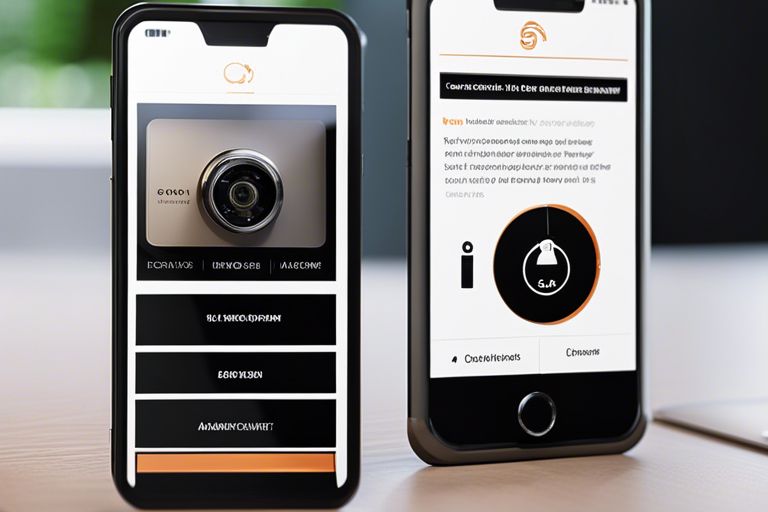As social media becomes an increasingly integral part of our daily lives, it is essential to understand the implications of sharing personal information online. With the rise of data breaches and cyber attacks, protecting your online privacy is more important than ever before. In this article, we will explore the various ways in which you can safeguard your digital identity and maintain your privacy while using social media.
Introduction
Social media has revolutionized the way we interact with the world, allowing us to connect with friends, family, and colleagues across the globe. However, with this connectivity comes the potential for privacy violations, as the personal information we share online can be vulnerable to cybercriminals and other malicious actors.
Fortunately, there are steps you can take to protect your online privacy and ensure that your personal data remains secure. By understanding the risks of social media use and implementing best practices for privacy protection, you can maintain your digital identity and use social media with confidence.
Understanding Online Privacy
Online privacy refers to the ability to control how personal information is collected, used, and shared on the Internet. This includes sensitive data such as your name, address, email address, phone number, and financial information. While some data is necessary to use social media platforms, it is important to be aware of how much information you are sharing and with whom.
Risks of Social Media Use
Social media platforms collect vast amounts of personal data, which can be used for targeted advertising and other purposes. Additionally, cybercriminals may attempt to steal personal information through phishing scams, malware attacks, and other methods. The risks of social media use include:
- Identity theft
- Cyberbullying
- Stalking
- Harassment
- Reputation damage
- Financial fraud
Best Practices for Protecting Your Online Privacy
To protect your online privacy while using social media, follow these best practices:
Create Strong Passwords
Use complex passwords that are difficult to guess, and avoid using the same password for multiple accounts. Consider using a password manager to securely store your passwords.
Limit Personal Information Sharing
Be cautious about sharing personal information such as your full name, address, phone number, and email address on social media platforms. Consider using a pseudonym or nickname instead of your real name.
Be Mindful of Social Media Settings
Review and adjust the privacy settings on your social media accounts to ensure that only those whom you trust have access to your personal information. Be aware that default settings may not be the most secure.
Use Two-Factor Authentication
Enable two-factor authentication on your social media accounts to add an extra layer of security. This will require you to enter a code sent to your phone or email in addition to your password to access your account.
Regularly Update Your Devices and Software
Ensure that your devices and software are up to date with the latest security patches and updates. This will help protect against known vulnerabilities that could be exploited by hackers.
Be Careful What You Click On
Avoid clicking on suspicious links or downloading unknown attachments. These could be phishing scams or contain malware that can compromise your device and steal your
personal information.
Additional Steps for Advanced Privacy Protection
In addition to the above best practices, there are additional steps you can take to enhance your online privacy protection. These include:
Use a VPN
A virtual private network (VPN) encrypts your internet traffic and hides your IP address, making it difficult for third parties to track your online activity. Use a reputable VPN service to enhance your online privacy while using social media.
Use Encrypted Messaging Apps
Use messaging apps that offer end-to-end encryption, which means that only the sender and recipient can read the messages. Examples of encrypted messaging apps include Signal and WhatsApp.
Use Privacy-Focused Search Engines
Use search engines that prioritize user privacy, such as DuckDuckGo and StartPage. These search engines do not collect or store user data, unlike more popular search engines like Google.
Use Privacy-Focused Browsers
Use web browsers that prioritize user privacy, such as Firefox and Brave. These browsers block third-party cookies and trackers and offer additional privacy features.
Conclusion
As social media becomes more ubiquitous, it is important to take steps to protect your online privacy. By creating strong passwords, limiting personal information sharing, being mindful of social media settings, using two-factor authentication, regularly updating your devices and software, and being careful what you click on, you can reduce the risk of cyber-attacks and data breaches. Additionally, using additional privacy protection measures such as VPNs, encrypted messaging apps, and privacy-focused search engines and browsers can further enhance your online privacy.
FAQs
- What is a VPN, and how does it protect my online privacy? A VPN encrypts your internet traffic and hides your IP address, making it difficult for third parties to track your online activity.
- Why is it important to use different passwords for different accounts? Using the same password for multiple accounts increases the risk of a data breach affecting multiple accounts.
- What are some common signs of a phishing scam? Common signs of a phishing scam include suspicious emails or messages requesting personal information, urgent calls to action, and typos or grammatical errors.
- How can I tell if a website is secure? Look for a lock icon in the URL bar or the letters “https” in the URL, which indicates that the website is using secure encryption.
- Why should I use a privacy-focused browser or search engine? Privacy-focused browsers and search engines prioritize user privacy and do not collect or store user data, reducing the risk of data breaches and cyber-attacks.






